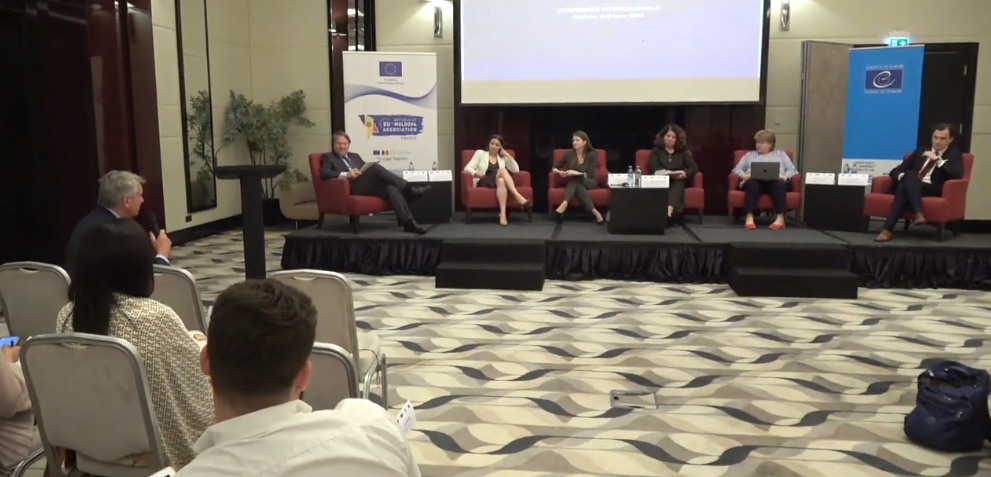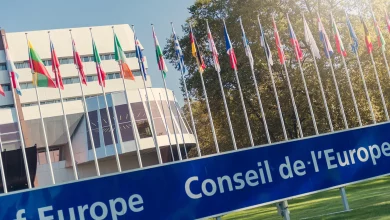A new law on access to information is in the process of being drafted. The need to amend the law was discussed in Chisinau

A new draft law on access to information is in the process of being drafted, informed representatives of the Ministry of Justice at the international conference “Effective implementation of the right to information: from a new law on access to information to institutional changes in the Republic of Moldova”. Representatives of several authorities, foreign officials, experts and journalists attended the event on June 9, organized by the Council of Europe office in Chisinau.
In his speech, the European Union (EU) ambassador in Chisinau, Jānis Mažeiks, noted that, according to some data, half of public interest requests in 2018 were ignored by the authorities. “We would be interested if there is any positive dynamic or what the situation is. The main challenges in terms of access to information are basically the same over the last 20 years – oligarchisation, politicisation of the media sector, outdated legislation, unwillingness of the authorities to provide access to public interest information,” said the diplomat.
The EU ambassador believes that legislation on access to information needs to be improved. “We know that the Ministry of Justice, with the support of the EU, supports the realisation of a new law, including through this project, and we know that the initial context is the ratification by the Republic of Moldova of the Council of Europe Convention which also requires some legislative changes to establish this boundary between the protection of personal data and access to information,” added Jānis Mažeiks.
Patrick Pennincks, head of the Information Society Department within the Council of Europe, also believes that legislation needs to be improved. “The media landscape has changed in the region over the last two decades, but especially over the last two months, and we have to deal with these changing environments. If we want to keep democracy in our society, we need to change the norms, adjust, adapt to the new circumstances. Moreover, sometimes creating new institutions is not always an ideal answer. What is required is to provide safeguards”, said the official.
He also noted the importance of signing by the Republic of Moldova of the Tromso Convention on access to official documents, noting that not all EU countries have signed this document.
Attending the event, Minister of Justice Sergiu Litvinenco underlined that the intention of the authorities is to simplify as much as possible the procedure for obtaining information of public interest and to ensure access to information for all, especially for the media. “It cannot be overlooked either that, in the context of the fight against corruption, it is more than necessary to ensure guarantees of the right to information, which encourages transparency, or transparency in turn mitigates corruption. For this reason, a government that acts in the shadow of secrecy, when we are talking about a public interest, and that does not justify secrecy is in total opposition to this guaranteed right. Since the Ministry of Justice is the institution responsible for human rights policy-making, we have stressed that our agenda includes the objective of developing the regulatory framework to improve the current regulations,” said Sergiu Litvinenco.
In this context, the State Secretary of the MoJ, Veronica Mihailov-Moraru, stated that a first draft of the new law on access to information has already been drafted, including the aspects of compliance with the requirements of proactive transparency. This includes more data to be published on official websites, more clarity on access to information through electronic systems and on fees for access to different data. She anticipates that the document will be finalised in the autumn.
In this context, the State Secretary of the MoJ, Veronica Mihailov-Moraru, stated that a first draft of the new law on access to information has already been drafted, including the aspects of compliance with the requirements of proactive transparency. This includes more data to be published on official websites, more clarity on access to information through electronic systems and on fees for access to different data. She anticipates that the document will be finalised in the autumn.
In this context, the chairperson of the parliamentary media committee, Liliana Nicolaescu-Onofrei, said that MPs would support the ministry on the legislative side.
The editor of Ziarul de Gardă, Alina Radu, listed a number of problems faced by investigative reporters, including fees for access to databases, restrictions on access to information that is classified as a state secret and failure to provide timely answers. “The current law says that requests for information can be made verbally, but that doesn’t work. We keep being told that we have to send requests for information. Please accept that a request for information means an e-mail, just like I send a simple e-mail to the Council of Europe and get an answer…”, underlined Alina Radu.




